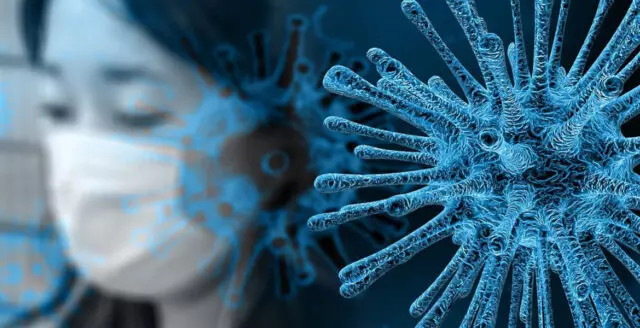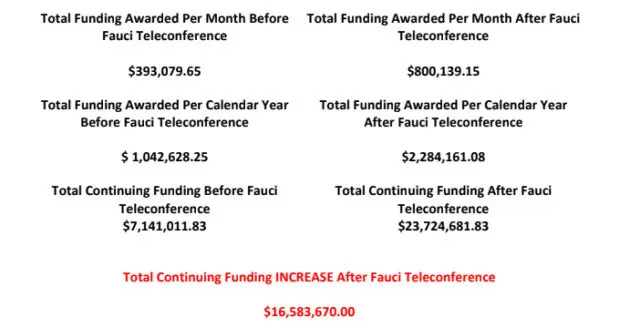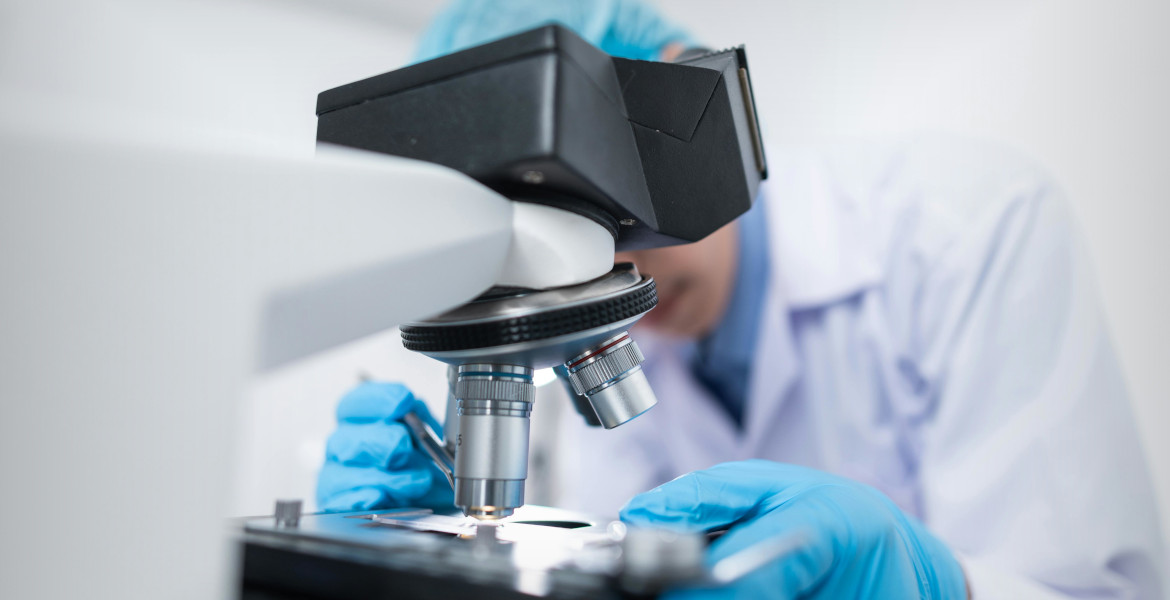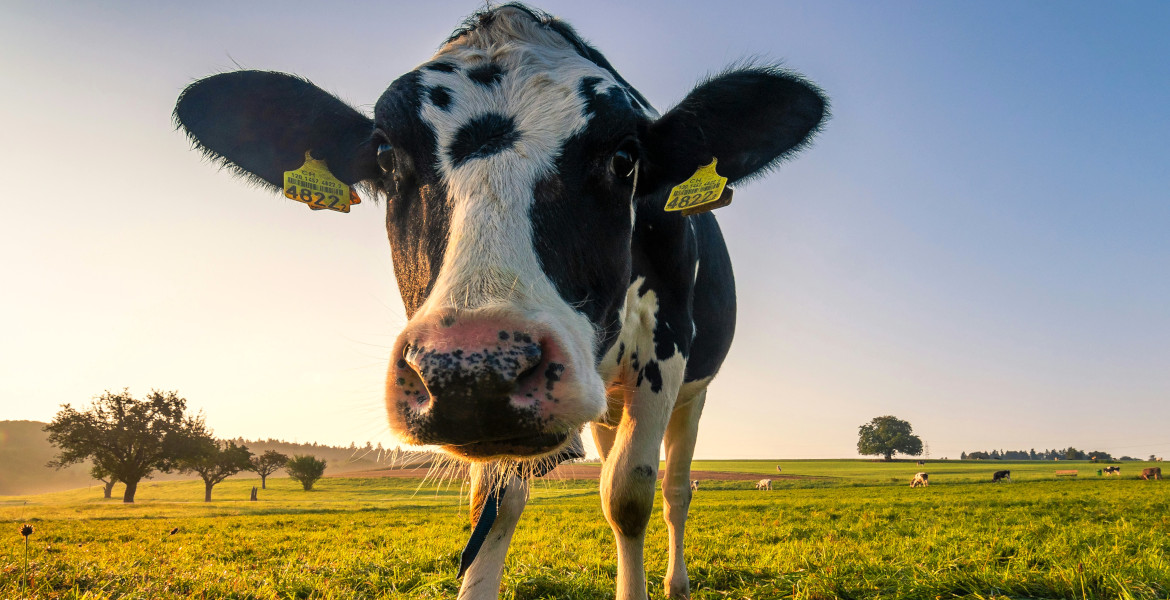Early on during the covid crisis, researcher Kristian Andersen stuck his neck out when he pointed out that the coronavirus did not seem to be of natural origin – but rather gave the impression of being artificially created.
However, after talks with the former director of the National Institute of Allergy and Infectious Diseases, Anthony Fauci, the scientist quickly came out and condemned speculation about human involvement as "conspiracy theories", leading Andersen to be accused of being "bought out" – partly because government funding for his research increased after he changed his mind on the issue.
Kristian Andersen, a researcher and professor in the Department of Immunology and Microbiology at the Scripps Research Institute in San Diego, emailed US Centers for Disease Control and Prevention (CDC) Director Anthony Fauci on the 31st of January 2020, warning that there were many indications that the virus did not come from any animal at all.
"You have to look really closely at all the sequences to see that some of the features (potentially) appear to be engineered... Eddie (Holmes), Bob (Garry), Mike (Ferguson) and myself all believe that the genome is inconsistent with expectations from evolutionary theory," he wrote at the time.
The next day, Fauci organized a conference call with 11 virologists from across the world – including Kristian Andersen, who less than 24 hours earlier had sent the email stating that the virus appeared to be engineered. However, Fauci's boss, health department head Robert Kadlec, was not invited to the conference.
It is not known what was said during the conversation, but four days after the conference took place, Mr Andersen suddenly made a 180-degree turn and went public to warn against conspiracy theories about man-made covid – despite the fact that he himself had just warned about the same thing.
"The main conspiracy theories circulating at the moment are that the virus is somehow engineered ... and that is demonstrably false," Mr Andersen declared at the time.

Financial motives?
A few weeks later, Kristian Andersen and three other participants from the video conference with Fauci authored a scientific article published in Nature Medicine, claiming, among other things, that "our analyses clearly show that SARS-CoV-2 is not a laboratory product". According to The Federalist, Andersen also offered Fauci to edit the article before publication.
In their 2021 article, The Federalist points out that the information from Fauci's email indicates that he was aware of scientists' concerns about man-made covid as early as 1 February 2020. Yet he chose to keep this information secret from his superiors and the American people, people who speculated that the virus had leaked from a laboratory in Wuhan were dismissed as conspiracy theorists and were subjected to character assassination.
In an interview with the New York Times, Mr Andersen explains his reversal by saying that his internal warnings to Mr Fauci were based on "limited data" and "preliminary analyses" – which he soon revised as more information became available.
However, a report by researcher and epidemiologist Andrew G Huff – former vice-president of the EcoHealth Alliance, a New York-based group that has worked closely with the notorious Wuhan lab – suggests that it may have been purely financial motives that caused Andersen to change his mind on the issue.
"Kristian Andersen, who in late January wrote to Fauci expressing his concern that SARS-Co-V-2 contained sequences that appeared to be man-made, led a group that published an article in Nature on 17 March 2020, supporting the theory that the virus is transmitted from animals to humans. Following this, Andersen received a generous grant from the National Institutes of Health. "At this point, we have no way of knowing whether this was a form of quid pro quo, but it can at least be concluded that this does not pass the 'smell test'", he writes.
He emphasizes that the National Institutes of Health, which funds medical research in the US, "dramatically increased" its funding for Andersen's research after he changed his mind on the origin of COVID-19 and started arguing for a natural origin instead of an artificial one.

Renewed attention
Huff's report was released in September 2022 – but the issue of whether there may have been financial incentives for scientists to revise their position on the origin of the virus has been widely publicised again. This is due to the fact that an account belonging to the Libertarian Party in the US has drawn attention to the issue and refers to documents that support the theory.
The man on the left is Kristian Andersen, a British scientist who emailed Fauci 1/31/20, saying the virus looks lab-made. The man on the right is Kristian Andersen, the guy who Fauci called on 2/1/20 and ordered to publicly say it wasn’t lab-made, which he did. Fauci then gave… https://t.co/UDzIhNb37k pic.twitter.com/LY7ttS23kJ
— Mises Caucus (@LPMisesCaucus) March 1, 2023
The man on the left is Kristian Andersen, a British scientist who emailed Fauci 1/31/20, saying the virus looks lab-made. The man on the right is Kristian Andersen, the guy who Fauci called on 2/1/20 and ordered to publicly say it wasn’t lab-made, which he did. Fauci then gave… pic.twitter.com/LY7ttS23kJ
— Mises Caucus (@LPMisesCaucus) March 1, 2023
Many interpret these findings as an example of the fact that researchers are primarily loyal to their financiers - and that Fauci's behaviour is a further indication that the US was directly involved in the development of the SARS-CoV-2 virus. At the same time, Huff's compilation is also questioned as sloppy, pointing out that Andersen is presented as a British researcher – even though he is Danish, and that it cannot currently be proven that his change of opinion is a result of increased funding.





